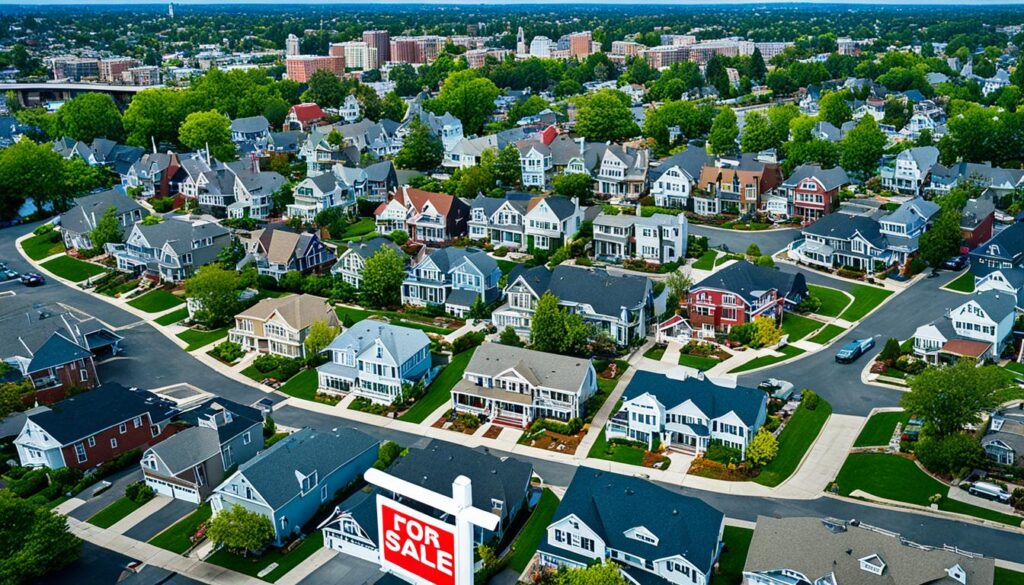Investing in real estate is a significant decision, especially for those asking, “Can a foreigner buy property in South Africa?” The answer is a resounding yes; foreigners can indeed invest in South African real estate, providing a unique opportunity for both individuals and corporations based outside the country. With attractive exchange rates and promising rental yields ranging from 8.6% to 11.3%, foreign investment in South African real estate is becoming increasingly appealing1. However, potential investors should familiarize themselves with the legal framework governing foreign ownership, as rules may vary depending on property types and locations. Understanding these nuances is critical when buying property as a non-resident in South Africa to ensure a smooth transaction and informed investment.
Key Takeaways
- Foreigners can purchase property in South Africa, making it a viable investment destination.
- Investors can finance up to 50% of the property value through South African banks2.
- No specific minimum investment requirement exists, allowing for flexibility in purchases1.
- Potential rental yields are notably high, with gross returns appealing to foreign investors1.
- Foreign buyers should seek local legal counsel to navigate property laws effectively1.
- The process involves compliance with exchange control regulations for transferring funds1.
- Owning property in South Africa does not equate to residency status, requiring separate visa processes1.
Contact us if you are Interested in Buying Property Abroad!
Overview of Foreign Property Ownership in South Africa
Understanding the property ownership for foreigners in South Africa requires an awareness of the legal landscape that encourages international investment. Foreign nationals can purchase and own a variety of properties in South Africa without significant restrictions, making it an appealing market for international buyers. The country offers residential, commercial, and agricultural properties, though investors should stay informed about specific policies that may affect their investments, particularly in land expropriation aimed at agricultural land3.
Understanding the Landscape for Foreign Investors
Foreign investors looking at the South African real estate market for international buyers will find it accessible and inviting. To finance property purchases, foreigners can generally borrow up to 50% of the purchase price from South African banks. A typical mortgage application requires a deposit of 50% along with comprehensive documentation to prove the origin of funds3. Financial Intelligence Centre Act (FICA) documentation is mandatory for all transactions, ensuring transparency in property ownership.
Benefits of Investing in South African Real Estate
The benefits of investing in South African real estate extend beyond easy access to property ownership. Cities like Cape Town and Johannesburg attract significant tourist traffic, driving demand for rental properties. The potential for lucrative rental income during peak seasons, especially in popular areas such as Sea Point, enhances the appeal of real estate investments4. The legal system in South Africa safeguards the property rights of foreign investors, bolstering confidence among international buyers3.
| Property Type | Restrictions | Financing Limit |
|---|---|---|
| Residential | No restrictions | Up to 50% |
| Commercial | No restrictions | Up to 50% |
| Agricultural | Potential restrictions apply | Up to 50% |
Can A Foreigner Buy Property In South Africa

Foreign nationals possess the opportunity to acquire property in South Africa, enjoying similar rights to local citizens. The legal framework governing non-citizens buying real estate in South Africa is quite permissive, although exceptions exist for agricultural land, where ownership is subject to specific restrictions. Foreign buyers must ensure compliance with local laws during the property acquisition process.
Legal Framework for Foreign Buyers
The current regulations on foreign property ownership in South Africa allow foreigners to buy both residential and commercial properties. To ensure a smooth transaction, buyers are advised to consult with experts familiar with local laws. This includes understanding tax implications, as foreign buyers are considered South African taxpayers and must adhere to local taxation requirements like the Capital Gains Tax upon selling property5. Notably, tax implications may vary depending on whether the seller is a VAT vendor or a non-VAT vendor5.
Types of Properties Available
Foreign investors can explore a diverse range of types of properties available for foreign buyers in South Africa. Options include luxury homes, modern apartments, and commercial real estate, catering to a variety of budgets and investment strategies. This increasing interest is further fueled by favorable exchange rates, enticing more foreign buyers into the market6. Additionally, long-term visa holders may access mortgage packages, allowing them to finance their purchases6.
Understanding Regulations on Foreign Property Ownership in South Africa

Foreign property ownership in South Africa is subject to specific legal requirements and regulations. To ensure compliance, foreigners must adhere to a series of obligations before acquiring property in the country. This includes understanding the necessary documentation and legalities of purchasing property in South Africa as a foreigner.
Key Regulations and Compliance
Foreigners are allowed to purchase property in South Africa, but they must comply with various regulations on foreign property ownership in South Africa. Key requirements include holding a valid Visa, work or residence permit, and a valid Passport. Foreign companies wishing to buy property must register as a foreign external company under the Companies Act 71 of 200878.
If a foreign purchaser is not in South Africa, they must sign transfer documents in the presence of an official at a South African Embassy or Notary Public, potentially incurring additional costs. It is critical for these transactions to be handled by trustworthy conveyancing attorneys who have expertise in foreign investment78. These professionals ensure compliance with the legal obligations that prevent non-compliant transfers of real estate.
Impacts of Exchange Control Laws
The impacts of exchange control laws significantly affect how foreign buyers can finance property purchases. Foreign purchasers may opt for a Mortgage Bond Application or cash payment from a South African or offshore bank account. When purchasing property exceeding R1,100,000, buyers are required to pay Transfer Duty to SARS and are responsible for Transferring Attorney costs as well as any Mortgage Bond Registration costs related to the purchase78.
Understanding these regulations ensures that foreign investors navigate the complexities of the South African property market effectively. Through proper legal advice and compliance, investors can protect their interests while maximizing opportunities within this vibrant market.
Contact us if you are Interested in Buying Property Abroad!
Process of Buying Property in South Africa as a Foreigner

When thinking of buying property as a non-resident in South Africa, understanding the process is crucial. This journey involves several essential steps that aim to simplify your property investment experience. Familiarizing yourself with the step-by-step guide to buying property will help you navigate the unique landscape of the South African real estate market.
Step-by-Step Guide to the Buying Process
The process of purchasing property as a foreigner in South Africa typically unfolds through the following steps:
- Identify the Type of Property – Determine if you desire a residential, commercial, or holiday property.
- Consider Financing Options – Foreigners can generally secure a loan for up to 50% of the purchase price, making financing a significant part of this journey9.
- Engage a Local Estate Agent – A knowledgeable estate agent can provide valuable insights into available properties and assist you through the buying process.
- Conduct Due Diligence – Research the property thoroughly to ensure it meets your requirements. This includes title checks and inspections.
- Make an Offer – Submit your offer to purchase. If accepted, this typically leads to signing a sale agreement.
- Transfer Process – After signing the sale agreement, the process of property transfer begins. It’s advisable to hire a qualified real estate attorney to assist with the legal complexities involved.
Throughout this entire process, it is important to be patient as it can take between three to six months to finalize your property acquisition . Seeking expert assistance can enhance your understanding and help mitigate risks associated with buying property as a non-resident in South Africa.
Financing Options for Non-Residents in South Africa

Foreign buyers interested in foreign investment in South African real estate can find various financing options tailored to their needs. It is essential to comprehend the mortgage availability for foreign buyers, as different banks and financial institutions may have distinct requirements and products. Generally, non-residents can secure financing for up to 50% of the property value, necessitating that the remaining balance is sourced from foreign funds.
Mortgage Availability and Requirements
For non-residents applying for mortgages, lenders such as Absa, Standard Bank, and FNB often require certain documentation. These may include proof of legal residence, creditworthiness documents, and affordability proof. Additionally, a deposit payment of up to 50% of the purchase price is often necessary, and foreign buyers might anticipate paying higher interest rates and less favorable terms due to increased risk associated with international investments10. Standard mortgage products available include fixed-rate and variable-rate options, with the latter being more prevalent in South Africa10.
Comparing Local and International Financing Options
When considering different financing options, buyers should thoroughly evaluate local and international products. This includes understanding the implications of a minimum monthly income requirement of R25,000 for non-resident borrowers seeking specific loan options11. By assessing the costs associated with various mortgage arrangements—such as registration, transferring costs, and other fees—buyers can ensure they are well-informed about their financial commitments. Furthermore, choosing a provider that offers comprehensive support, such as Ooba, can simplify the process and enhance access to favorable mortgage products available for foreigners.
| Mortgage Type | Interest Rate Stability | Typical Term | Common Usage |
|---|---|---|---|
| Fixed Rate | Stable for approx. 5 years | 5 years | Long-term investments |
| Variable Rate | Fluctuates with market rates | Varies | Short to mid-term financing |
In summary, understanding the financing options for non-residents in South Africa is critical for anyone looking to invest in the local property market. Comparisons between local and international financing options will empower foreign buyers to make informed decisions as they navigate through the complexities of securing funding for their real estate investments.
“Budgeting 4% to 5% of purchase costs for additional fees related to property transfer and mortgage arrangements is highly recommended.”
Tax Implications for Foreign Property Owners

Foreign property owners in South Africa should be well-informed about the tax implications for foreign property owners, particularly regarding understanding transfer duty and capital gains tax. The transfer duty, which is calculated on a sliding scale based on the property value, can range from 0% to 13% in South Africa12. This duty plays a significant role in the costs associated with purchasing property and must be factored into any investment analysis.
Understanding Transfer Duty and Capital Gains Tax
Understanding transfer duty is crucial for foreign investors as it directly affects the total cost of acquiring property. This detailed information on transfer duty outlines how it can impact budgets significantly. Furthermore, when foreign property owners decide to sell their investments, they may face capital gains tax, which applies to the profits made from the sale. Non-residents must register as South African taxpayers to fulfill their Capital Gains Tax obligations12.
Tax Benefits for Foreign Investors
Foreign investors can potentially reap tax benefits for foreign investors, such as exclusions under certain conditions. For instance, if an expatriate resides in a foreign home for at least two of the previous five years, they can exclude up to $250,000 ($500,000 for married couples) from taxes on capital gains13. Prior knowledge of the tax landscape can enable better strategic planning, enhancing the overall return on investment.
Choosing the Right Property Location in South Africa

Choosing the right property location in South Africa is essential for maximizing investment potential. The landscape varies significantly across regions, presenting unique opportunities for investors. Navigating the top cities for property investment can yield favorable returns and insights into the market dynamics.
Top Cities for Property Investment
Among the most appealing destinations are Cape Town, Johannesburg, and Durban. Cape Town, renowned for its breathtaking scenery, offers property prices that are approximately 83% cheaper per square meter compared to the UK, with the average apartment price per sq.m in the city center reaching about 35,888 ZAR14. Johannesburg, the economic heartbeat of South Africa, provides vast opportunities for business growth and investment in urban areas. Durban, known for its coastlines and warm weather, attracts both local and international investors thanks to its tourism-driven rental income potential15.
Evaluating Neighborhoods for Investment Potential
Evaluating neighborhoods for investment potential requires careful analysis of local demographics, property values, and amenities. Investors should consider suburban areas that are experiencing growth, as these sometimes yield better long-term returns, while maintaining lower acquisition costs14. Factors such as proximity to schools, shopping centers, and public transport can influence property desirability. Popular methods for property searches include utilizing prestigious real estate agencies such as Pam Golding and online platforms like Property24. Investors must also remain cautious of pitfalls like potential structural concerns and market scams. Ultimately, making informed decisions about location can ensure that your investment aligns with your financial goals15.
Legalities of Purchasing Property in South Africa as a Foreigner
Navigating the legalities of purchasing property in South Africa as a foreigner can be complex, making the importance of engaging a local lawyer paramount. While not legally mandatory, hiring a local legal expert can greatly reduce risks associated with real estate transactions. Local lawyers are adept at understanding the intricacies of compliance and regulatory requirements, ensuring that foreign buyers remain well-informed throughout the entire process16.
Importance of Engaging a Local Lawyer
A seasoned attorney can guide foreign investors through essential legal frameworks and inform them about the nuances of South African property law. This becomes especially vital when considering potential liabilities and documentation required for foreign property purchase. Local lawyers can assist with critical documentation such as identity proofs, tax clearance certificates, and financial records associated with your purchase, ensuring that all facets of the transaction are legally sound.
Documentation Required for Property Purchase
Beyond legal advice, having the right documentation is crucial for a seamless purchase experience. Essential documents include a valid passport and any necessary visas, depending on the purpose of the visit. Depending on nationality and visa type, certain legal obligations can arise from transgressions against the Immigration Act, reinforcing the necessity of understanding the legal landscape before initiating a property purchase effort in South Africa (source)17.
Contact us if you are Interested in Buying Property Abroad!
FAQ
Can a foreigner buy property in South Africa?
What are the benefits of investing in South African real estate?
Are there any legal requirements for foreigners buying property?
What types of properties can foreigners buy in South Africa?
What is the process for buying property in South Africa as a foreigner?
Are mortgage options available for non-residents?
What taxes do foreign property owners need to consider?
Which cities in South Africa are the best for property investment?
Is it necessary to hire a local lawyer for property purchases?
What documentation is required for purchasing property in South Africa?
Source Links
- https://theafricanvestor.com/blogs/news/south-africa-real-estate-foreigner
- https://www.ooba.co.za/resources/foreigners-buying-property-in-south-africa/
- https://sustainablesystemstech.co.za/buy-property-in-south-africa/
- https://hotpropertycapetown.com/blog/can-foreigners-buy-property-in-south-africa/
- https://www.snymans.com/advice/foreign-property-ownership-in-south-africa
- https://phoenixbonds.finance/Insights/entryid/507/getting-into-the-property-market-as-a-foreigner-in-south-africa
- https://www.property24.com/articles/foreign-property-ownership-in-south-africa-explained/31801
- https://www.introrealestate.co.za/article/791715/navigating-foreign-property-ownership-in-south-africa
- https://www.expatica.com/za/housing/buying/buying-a-house-in-south-africa-105929/
- https://wise.com/us/blog/getting-a-mortgage-in-south-africa
- https://www.fnb.co.za/forex/non-resident/home-loans.html
- https://hardieproperty.com/foreign-buyers-advice/
- https://brighttax.com/blog/americans-buying-and-selling-property-overseas/
- https://wise.com/gb/blog/buying-property-in-south-africa
- https://www.abgross.co.za/foreigners-property-south-africa/
- https://fninc.co.za/publications/Foreigners-Buying-a-Home-in-South-Africa.pdf
- https://www.hobbsinc.co.za/navigating-your-tax-obligations-when-buying-property-in-sa-as-a-foreigner-or-expat/

Comments